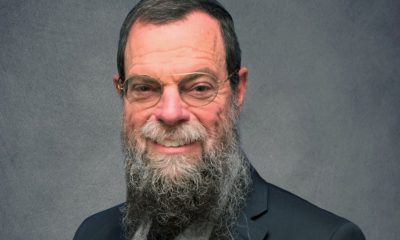
Religion

A journey to authenticity
As South African Jews, we appreciate what it means to be Jewish. We appreciate how Judaism enriches our homes and families, how it connects us to community, how it gives our lives direction, meaning, and purpose. We appreciate, also, how Judaism helps us to become better people – compassionate, giving, loving, moral people. And how it brings us close to our Creator, to those around us, and to our own inner self. Judaism roots us in a rich spiritual, ethical, and historical tradition, and connects us to Jews around the world and our beloved Israel.
Judaism enriches our lives in so many ways. But as Shavuot approaches, we are reminded that being Jewish is connected to certain foundational facts and truths of actual events that happened.
On Shavuot, we celebrate the anniversary of the birth of the Jewish people – the story of who we are, where we come from, and most importantly, why we exist. This year, we mark exactly 3 333 years since G-d gave us the Torah on Mount Sinai.
Shavuot makes a factual claim about the origins of the Jewish people in the same way that Pesach does. At the Pesach seder, we trace the origins of our people from slavery to miraculous redemption through G-d Himself intervening in human history. And on Shavuot, we remind ourselves how three million Jews standing at the foot of a mountain heard G-d speak and begin the process of revealing His Torah to us and with it our purpose in life.
Take a moment to think about this. It’s a radical claim. To be a Jew isn’t just to be a member of a particular culture with a shared history. It’s to be part of an eternal covenant with G-d, to be the bearers of a Divine mission in the world. This is the essence of Jewish identity and Jewish destiny. This is who we are, where we come from, why we exist.
And so, everything depends on the historical claims we make on Pesach and Shavuot. This is a time to reflect not just on the meaning and the implications of the story of the origin of the Jewish people, but on its authenticity.
Earlier this week, I had a fascinating conversation with Rabbi Lawrence Kelemen. A graduate of the University of California Los Angeles and Harvard, he is a recognised expert on comparative religion. The conversation was about exactly this subject – the authenticity of the origin story of the Jewish people, and in particular of the Divine revelation at Sinai. Kelemen compared it to the origin story and historical claims of other religions and nations, and put forward a compelling, rational-scientific argument for the veracity of the Jewish story.
What moved me in our conversation was his personal life story. He grew up in a traditional family but challenged his parents on beliefs that they took for granted. He began his own journey to search for truth through his academic studies and other sources. In the end, he came to a deep realisation of the truths of Judaism, of G-d’s existence, and the authenticity of the Torah. He wrote books – Permission to Believe and Permission to Receive – to share his findings with others. In our conversation, he told me how he found faith and belief in Judaism through rational analysis of the facts. He reminded me that we are all on individual journeys of deepening our faith. This may be why the festival is called Shavuot, which literally means week, referring to the weeks leading up to Sinai, reminding us that getting to the mountain of truth is a process, an individual journey of faith and connection.
Let this year’s Shavuot be a catalysing moment for us individually and collectively as we embark on this journey of faith together.
I’d love to know about your journey. Reach out to me, and I’ll share source material that has been valuable to me on my journey. There is so much that has been written and spoken that can guide and illuminate our paths to the foundational truths of our people.
Chag sameach!











Allan
May 20, 2021 at 9:06 am
Really a recognised expert on comparative religion? What articles has he published in peer review journals. He is also not a graduate of Harvard. See below
https://malimaalah.wixsite.com/offthederechthoughts/post/the-keleman-theorem-and-the-dishonesty-of-kiruv-rabbis